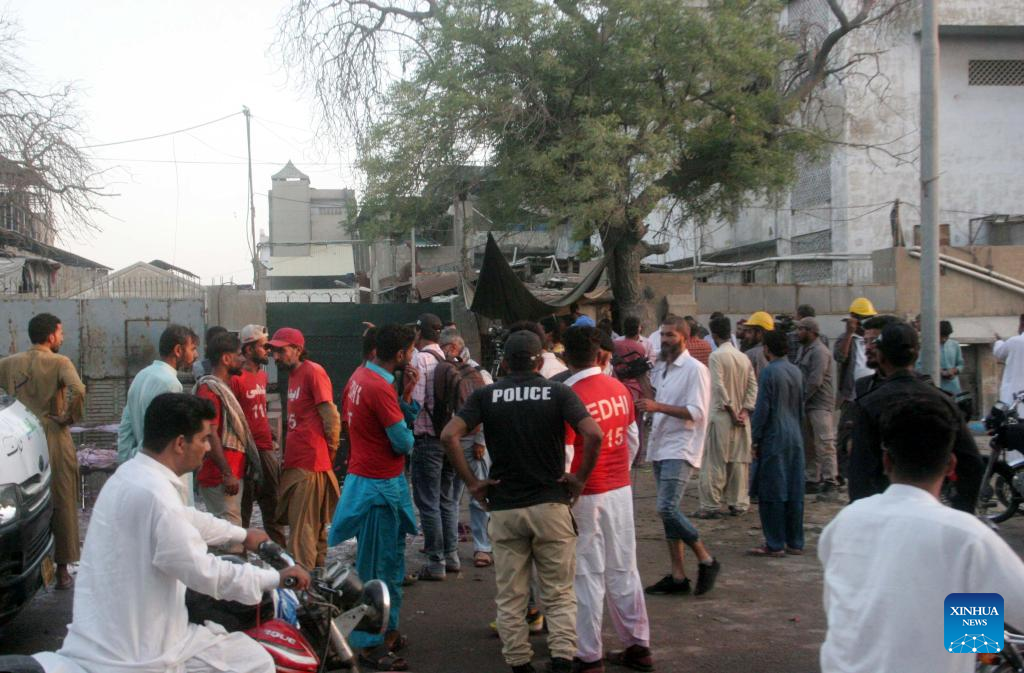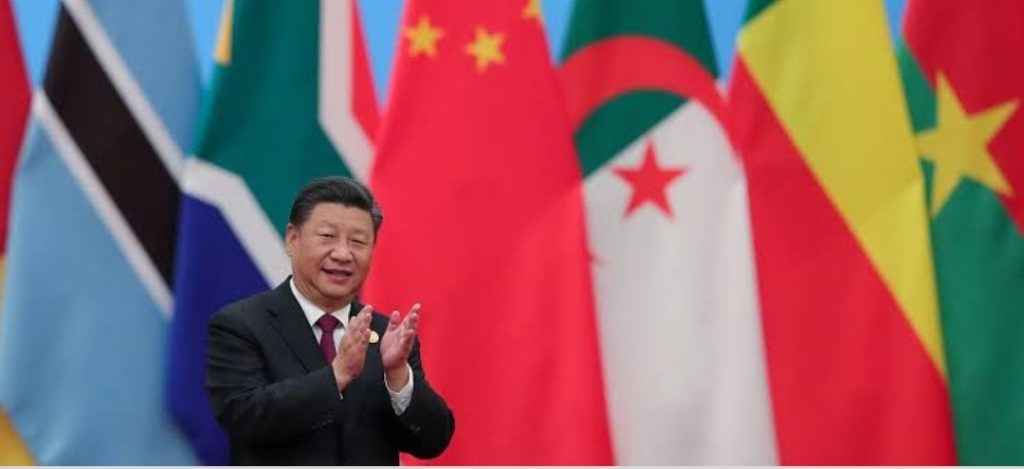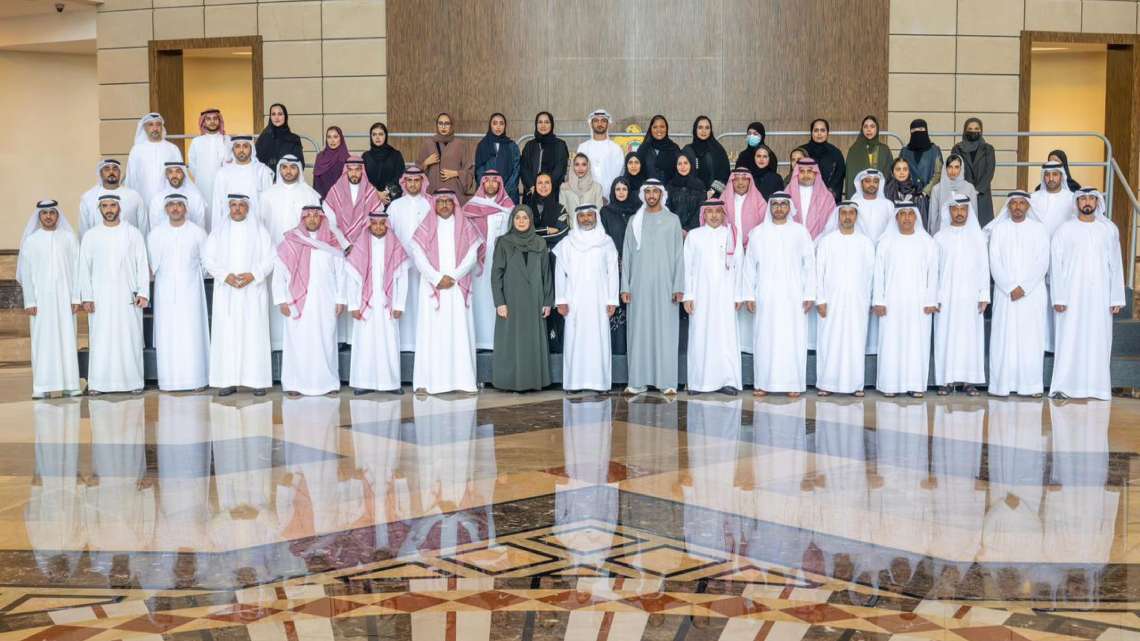The plight of the Pakistani people is worsening day by day. While political representatives in Islamabad bicker over power, impoverished citizens are dying in stampedes for a single bag of wheat flour … writes Dr Sakariya Kareem
Pakistan’s economy has been left to flounder without any signs of assistance from the International Monetary Fund (IMF) and record levels of inflation. Additionally, even friendly nations like Saudi Arabia and China have ignored Pakistan’s pleas for a bailout. With no immediate financial aid in sight and the possibility of further political turmoil, the incumbent Pakistan Democratic Movement (PDM) coalition government has resorted to desperate measures, such as a free or subsidised flour distribution program for the poor. This could have provided some relief for the economically disadvantaged and allowed the PDM alliance to gain some political leverage. However, the program turned out to be a colossal failure, causing international embarrassment for Pakistan.
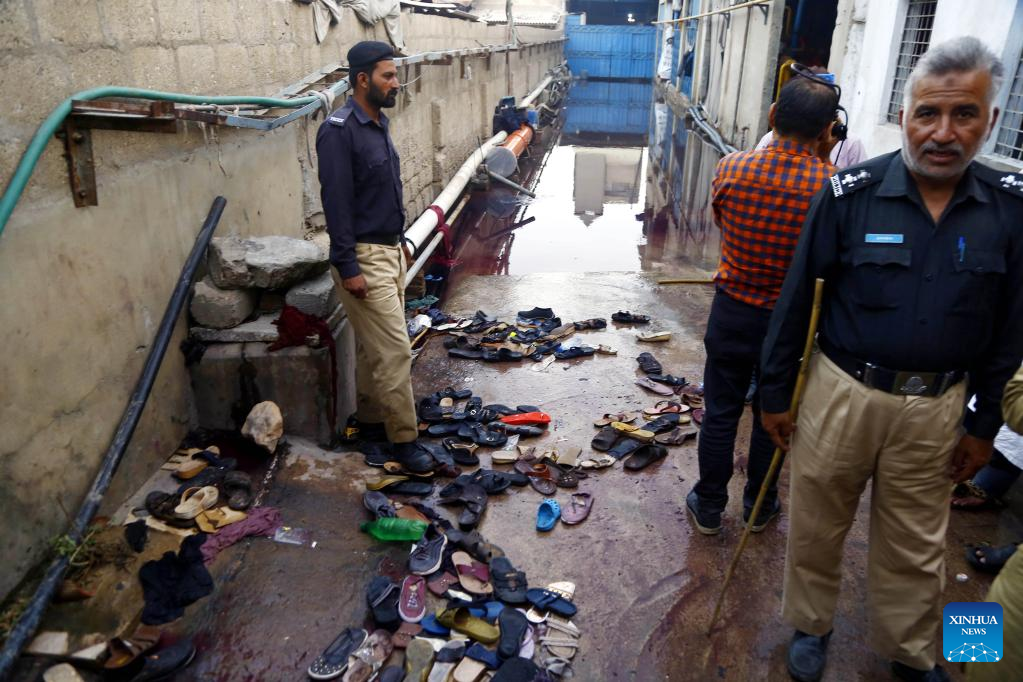
Several stampedes have occurred across all provinces in the last one month, resulting in the tragic deaths of numerous individuals, including women and children. In addition, thousands of flour bags have been stolen from trucks and distribution points. On March 23, a man was killed, and four others injured during a stampede at a distribution point in Khyber Pakhtunkhwa’s Charsadda district. Similarly, on March 28, two women lost their lives, and 45 others sustained injuries during a stampede at a free flour distribution in Punjab’s Sahiwal district. Since the PDM government launched an initiative in March to offer free flour to low-income families during the month of Ramadan, large crowds have been gathering at distribution centers. This program was originally aimed to address the severe impact of record-breaking inflation, which is currently at a 50-year high of over 30 per cent, causing poverty rates to surge in Pakistan.
According to media reports, there have been allegations of preferential treatment, where flour is being distributed to those with ‘connections’ or those who have paid bribes to government officials. Social media in Pakistan has been inundated with videos and photographs depicting women, children, and elderly individuals standing helplessly in long lines for hours, getting harassed and manhandled to obtain a sack or two of flour. To compound their difficulties, Pakistan’s Ministry of Finance has predicted further inflationary pressure as a result of the “second-round effect” of policy decisions made previously to increase energy and fuel prices, in order to secure an IMF bailout tranche of US $1.1 billion, which has been overdue since last September.
Some private business owners and non-profit organisations have also been distributing essential food items to those in need. However, even these efforts have not been able to prevent tragic incidents like the latest stampede on March 31, where at least 12 people died, women and children, during the distribution of Zakat among the families of employees working at a private company in Karachi. At least 23 fatalities have occurred since the commencement of the Islamic holy month of Ramadan due to stampedes at free food centers throughout Pakistan.
Meanwhile, the Human Rights Commission of Pakistan (HRCP) released a statement saying it was “deeply concerned by the mismanagement causing stampedes at wheat flour distribution centres set up by the government”. The commission termed the incident in Karachi to be “particularly alarming”. The HRCP tweeted its official statement on March 31, calling on the government improve the distribution system: “This situation is adding insult to injury for the marginalised people of Pakistan who are braving the economic injustice perpetuated by the elites who dominate the state.”
Expectedly, Imran Khan’s Pakistan Tehreek-i-Insaf (PTI) is using these incidents to target the PDM alliance and make political gains in Punjab. They are reportedly indulged in spreading misinformation regarding stampede incidents and questioning the “quality of flour” to create chaos and anger among public against the ruling government.
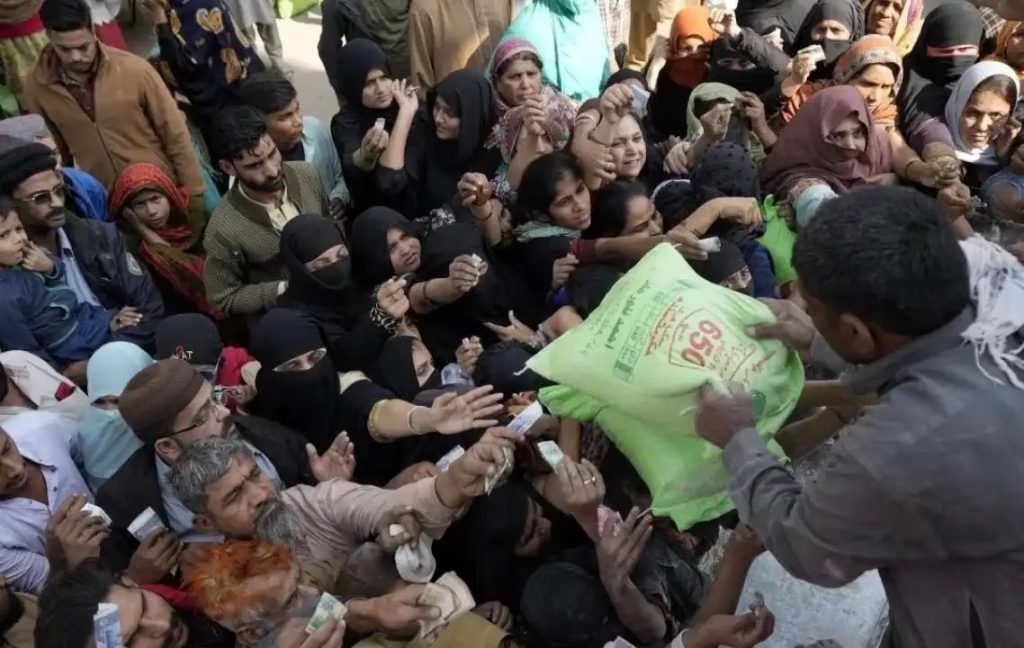
Pakistan is currently facing one of the worst economic crises in its history, leaving millions of people struggling to afford two full meals a day. The cost of living crisis has caused the prices of basic goods to skyrocket, with flour prices alone rising by over 45 per cent in the past year. The recent stampedes illustrate the desperation of the Pakistani people, who are grappling with rising costs, a falling currency, inflation, a current account deficit, and a foreign exchange crisis. According to the latest report by the Asian Development Bank (ADB), Pakistan’s economic growth is expected to slow significantly to 0.6 per cent in FY2023 from 6 per cent in the previous fiscal year. Similarly, the World Bank has sharply lowered Pakistan’s growth forecast for the current year, which is now expected to be 0.4 per cent instead of the previously forecasted 2 per cent growth in October.
Additionally, as per the Global Climate Risk Index, Pakistan has been ranked among the “ten most vulnerable nations” worldwide for the past two decades, adding to the country’s struggles. These factors collectively paint a grim picture of Pakistan’s current economic situation, with the population facing immense challenges to meet their basic needs.
ALSO READ: Economic Misery Creates Fertile Breeding Ground For Terrorism

